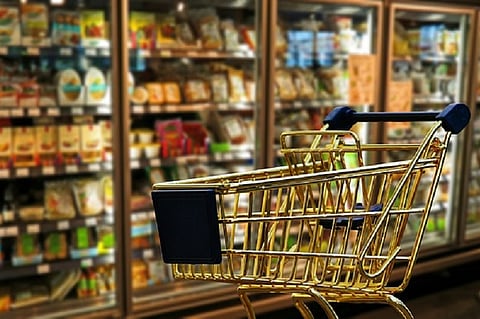

In less than 24 hours, India will adopt its largest tax reform – the Goods and Service Tax (GST). Once GST is introduced, it will replace a number of taxes like VAT, CST, Service tax, Excise, Entry tax, Purchase tax, and others.
The GST will have a four-tiered structure where various goods and services will come under four slabs: 5%, 12%, 18% and 28%.
There are different rates that are applicable on products and services across industries. Businesses will need to start filing returns more often.
Clearly, a lot will change. While this may get confusing, here is a low-down on how the GST will affect our everyday lives.
The exempted
There are a range of items that have been exempted from the GST. Meaning, they will be charged 0% tax.
These include milk, salt, fresh vegetables, cereals, lassi, jaggery, tender coconut water, prasad, fresh meat, fresh fish, coconut and coir fibre, live animals, unprocessed green tea leaves, printed books including braille books, newspapers, hearing aids, bangles, raw silk, cotton used in khadi yarn.
Groceries and household items
Under the GST, milk food for babies, edible vegetable oil and utensils will get cheaper with a 5% GST levy. However, tea and coffee will get expensive as the tax on them has been increased from 3-4% to 5%. Soaps, hair oils, toothpastes, ice-creams will also get cheaper as they will be taxed at 18% as against the current 22% tax. Butter, Ghee, Pickles will be charged a tax of 12%
However, personal care products shampoos, perfumes, skincare, detergents, make up items will get expensive with a 28% charge, up from the current 22%
Eating out
You may want to start eating at home more often post July 1. Under the new tax regime, restaurants are divided into AC and non-AC restaurants.
Eating at a non-AC restaurant will increase your hotel bills by about 6%. This is because a non-AC restaurant will charge you a tax of 12% as against the earlier 6%.
Eating at an AC restaurant will attract a tax of 18% as against the 10.6% that is now charged with VAT and service tax.
Enjoying a Pepsi or Sprite too will get more expensive post GST. Aerated drinks have been put under the highest slab of 40% under the GST. Companies like Coca-Cola have already announced that they will be marginally increasing the prices of its aerated drinks.
Going on a vacation
Taxation of hotels is currently under the state’s purview. Currently hotel rooms are taxed anywhere between 18-25%. Once GST comes into effect, hotels will be classified under four slabs: Rooms costing below Rs 1000 a night, Rs 1000-2500, Rs 2500-5000 and above 5000.
Each category has a different tax rate. Luxury rooms i.e. those costing above Rs 5000 will fall under the tax slab of 28% making them more expensive.
Rooms below Rs 5000 are likely to get cheaper.
Travel
Air and train travel may get slightly cheaper as the tax rate of transportation through rail and air has been decreased to 5% from the earlier rate of 15%.
However, business class tickets will become more expensive by about 3-4%.
Hailing a cab
Your Ola and Uber will get cheaper post GST. As against the current 6% tax levied on transport services, cab aggregators will be taxed at 5%.
Going out for a movie
For movie tickets, the current entertainment tax will be replaced by the GST.
Under GST, 28% tax will be levied on movie tickets that cost more than Rs 100. For tickets that cost less than Rs 100, an 18% tax has been levied from the previous 28%. However, a movie ticket in any multiplex costs more than Rs 100.
Whether or not movie tickets will get expensive will depend on the entertainment tax currently levied by the state.
Andhra Pradesh, Tamil Nadu, Delhi, Gujarat, Madhya Pradesh, Rajasthan, Orissa have an entertainment tax of below 28% and so watching a movie in a multiplex here will get more expensive.
Regional films, however, will be hit. Currently Kannada, Tamil, Marathi and Rajasthani films are exempted from the entertainment tax. But post GST, they will come under the tax purview as well. Telugu (15% entertainment tax) and Bengali (2%) movies will also become more expensive.
Mobile bills
Get ready for a higher mobile bill with the current service tax of 15% being replaced with a tax of 18% under the GST. Mobile operators may try to reduce this burden on you with lesser offers, but overall, there could be a marginal increase in your mobile bill.
Online shopping
Online shopping has two parts to it. Buying the product and getting it delivered. While the price of the product you buy may more or less remain the same (depending on what you buy), delivery will get expensive.
Consumer durables
Home appliances like televisions, ACs and Washing machines will get more expensive under GST with a tax of 28% being levied on them.
Sports and gaming
Playing a sport too may get more expensive now with a number of sports equipment being in the highest tax slab of 28%.
Shot puts, javelins, high-jump poles, boxing gloves and all gymnastics equipment as well as swimming gear will be taxed at 28% and in most cases, this will be a jump from an average of 4-5% now to 28%. Cricket bats, balls, chess and carom and bicycles will be taxed at 12%.
Video game consoles too will be taxed at 12%.